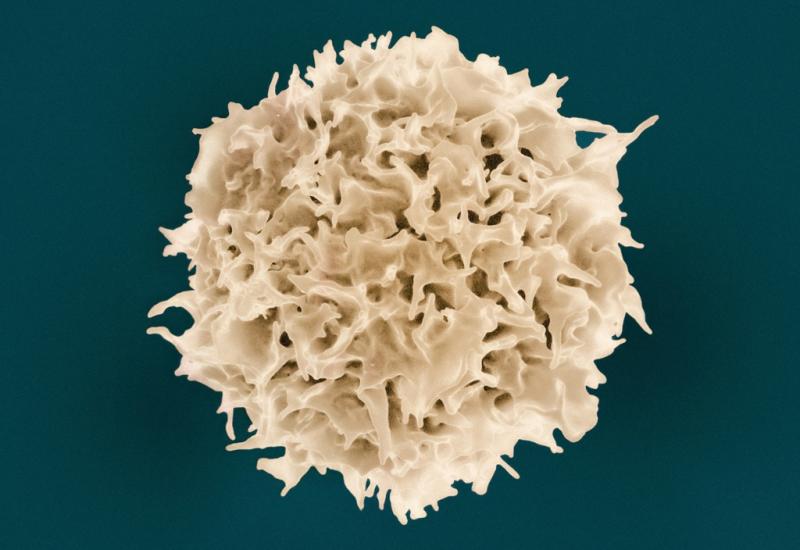
Instilling confidence in ImmuneOnco's bispecific
The first data are dribbled out, but cross-trial comparisons look uninspiring.
The first data are dribbled out, but cross-trial comparisons look uninspiring.

Ever since Instil Bio picked up ImmuneOnco's anti-PD-L1 x VEGF bispecific palverafusp alfa investors have wondered whether the deal was cheap because Instil got in ahead of the craze for this mechanism, or because the asset was no good. They now have some numbers to help them decide.
On Thursday ImmuneOnco revealed the first response rates from a phase 2 trial of a palvera/chemo combo in first-line lung cancer, saying these supported the project's further development. But the data are so early, with most responses unconfirmed, that they might just be noise; somewhat concerning is that on the available evidence palvera seems to be underperforming Roche's Tecentriq.
Tecentriq plus Avastin and chemo is approved in first-line non-squamous NSCLC on the basis of the Impower-150 study, one of the few trials to provide a benchmark for approaches that, like palvera, aim to combine PD-L1 blockade with VEGF inhibition and, like ImmuneOnco's phase 2 study, add chemo on top.
46-80% response rates
The headline numbers from the palvera chemo combo trial are that partial responses were seen in 80% of patients with squamous NSCLC, but in only 46% of those with non-squamous disease.
In Impower-150 ORR was a co-primary endpoint, and on this measure Tecentriq plus Avastin and chemo scored 63%, including a 4% rate of complete responses, versus a still respectable 48% for Avastin and chemo alone. Based on this bald cross-trial comparison it might be surmised that palvera adds nothing to Avastin in non-squamous patients.
True, an 80% ORR in first-line squamous NSCLC is respectable, but here no comparison for an Avastin combo is available, since the Roche drug can't be used in patients with this histology. Merck's Keynote-407 study of Keytruda plus chemo showed a 58% ORR in squamous NSCLC without the VEGF inhibition element.
A crucial benchmark is ivonescimab, which Summit licensed from Akeso in a deal that kicked off interest in PD-(L)1 x VEGF bispecifics, but this has mostly yielded monotherapy data, in NSCLC limited to PD-L1 expressers.
An ivonescimab chemo combo study in first-line squamous NSCLC, Harmoni-6, was recently toplined positive for PFS versus Tevimbra, but full data are unavailable, and nothing has been said about ORR. An earlier phase 2 trial of a chemo combo yielded ORRs of 71% and 54% in squamous and non-squamous subjects – numbers that look broadly similar to ImmuneOnco's.
Selected chemo combo trials in first-line NSCLC
| Trial | Regimen | ORR in squamous | ORR in non-squamous |
|---|---|---|---|
| Impower-150 | Tecentriq + Avastin + chemo | NA | 63% (224/353) |
| Avastin + chemo (control) | NA | 48% (159/331) | |
| ImmuneOnco phase 2 | Palverafusp alfa + chemo | 80% (8/10)* | 46% (5/11)* |
| Akeso phase 2 | Ivonescimab + chemo | 71% (45/63)** | 54% (39/72)** |
| Harmoni-6 | Ivonescimab + chemo | Only PFS win vs Tevimbra has been toplined | NA |
| Harmoni-3 | Ivonescimab + chemo | No data yet | |
| Keynote-189 | Keytruda + chemo | NA | 48% (197/410) |
| Keynote-407 | Keytruda + chemo | 58% (161/278) | NA |
Notes: *10mg/kg only, most responses unconfirmed ; **includes unconfirmed responses. Source: OncologyPipeline.
Comparisons aside, a major limitation of ImmuneOnco's data release is that this involves just 21 of 33 patients dosed at 10mg/kg; the study also tests 20mg/kg, but nothing has been said about this.
What's more, ImmuneOnco admits that "the majority of efficacy-evaluable patients had only one tumour assessment at data cutoff", meaning that most of the responses reported are unconfirmed. This raises the obvious question of why the company has dribbled out such an immature dataset rather than waiting for longer follow-up.
Instil Bio reported first-quarter cash of $115m, and having committed to start a US phase 1 solid tumour study of palvera by the end of this year it might be eyeing a possible equity raise, something that would be eased by positive sentiment around early data.
Instil pivoted away from TIL therapies last September when it licensed palvera from ImmuneOnco for just $50m in “up-front and potential near-term payments”. Subsequent deals have seen Merck & Co pay LaNova $588m for LM-299, Pfizer pay 3SBio $1.25bn for SSGJ-707, and Bristol-Myers Squibb pay BioNTech $1.5bn for BNT327, which BioNTech earlier acquired along with Biotheus for $800m.
On Thursday Instil's stock opened flat, and with a valuation of $180m it seems that its investors have yet to be convinced that it picked up a bargain.
2526













